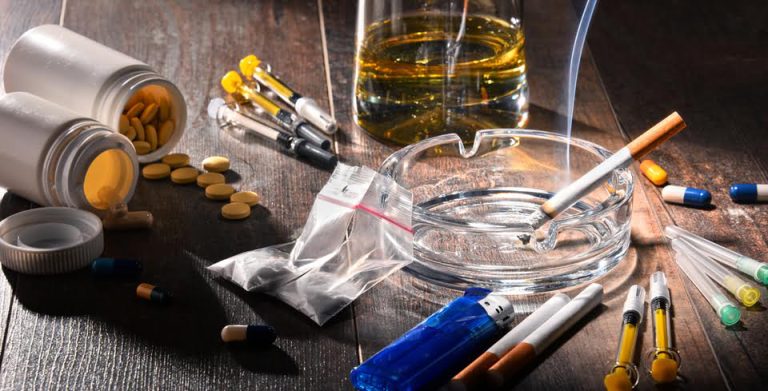No single factor can predict if Twelve-step program a person will experience addiction to drugs. When a person experiences withdrawal, the reward system in the basal ganglia shuts off. It triggers people to seek out drugs regularly in an attempt to achieve the same feeling.
Alcohol Rehab
- However, it’s far more likely to experience bumps and potholes along the way.
- Attending meetings, reflecting on your past use, and leaning into the stories of others navigating similar paths can provide a helpful tool for sustained recovery.
- Once an individual has had one drink or one drug use, it may quickly lead to a relapse of uncontrolled using.
- Join our global mission of connecting patients with addiction and mental health treatment.
When people enter a substance abuse program, I often hear them say, “I want to never have to think about using again.” It can be frightening when they discover that they still have occasional cravings. They feel they are doing something wrong and that they have let themselves and their families down. They are sometimes reluctant to even mention thoughts of using because they are so embarrassed by them. The path to addiction often starts with experimentation, where individuals try a substance out of curiosity, peer pressure, or to cope with challenges like stress, anxiety, or trauma. This phase is especially common among teens and young adults, with substances like alcohol, marijuana, or nicotine frequently involved. People in this stage may find themselves reminiscing about past substance use, daydreaming about using again, or reconnecting with old friends who use drugs.
- Thankfully, treatment works at each stage, whether you’ve just started or have been in active addiction for years.
- The key things to remember are that while there is no “cure” for addiction as of yet—-thousands of people in Ohio have found help for addiction and a way to live in long-term recovery.
- At this level, the addiction stops being a habit, but it becomes a chronic disease.
- Because clients are not consciously thinking about using during this stage, denial is a big part of emotional relapse.
- This is evident in individuals pathologically pursuing reward and relief through substance use and other behaviors.
Transition to Addiction: Patterns of Drug-Taking, Animal Models
Recognizing the stages of addiction is vital for both individuals struggling with substance use and their loved ones. Understanding that addiction is a chronic condition can help reduce stigma and promote empathy. It’s essential to approach addiction with compassion, acknowledging that it is not simply a matter of choice but a complex interplay of biological, psychological, and environmental factors.

The Experience Blog
Such observations have provided insights into the possible involvement of a dysregulated hippocampus in human addiction. This hypothesis https://ecosoberhouse.com/ is an extension of current knowledge because the hippocampus is broadly viewed as important in contextual conditioning, namely in the processing of contextual cues by which memories can be accessed and retrieved. In fact, declarative memory has been long recognized to be involved in learning and the linking of affective conditions or circumstances with drug-taking experiences. Studies with PET and functional magnetic resonance imaging have shown that cue-elicited craving, as well as acute intoxication, activates the hippocampus and amygdala (Volkow et al, 2004a). This glutamate dysregulation has been hypothesized to be caused by decreased function of the cystine–glutamate exchanger (Baker et al, 2003) and desensitization of the metabotropic glutamate mGlu2/3 receptor.

- Later, when using turns into a negative experience, they often continue to expect it to be positive.
- At First City Recovery we can help you break the cycle of addiction and get started on the road to recovery.
- Addiction is a chronic, often relapsing disorder characterized by a compulsive need to seek and use the substance or engage in the behavior, despite the negative consequences.
- If you’re a treatment provider and have a question, please reach out and someone from our Customer Success team will be in touch with you shortly.
- The actual process of developing a substance use disorder (SUD) tends to happen over a series of stages and often turns into a cycle of addiction, treatment or abstinence, and relapse.
- The final stage of the addiction cycle is relapse, often occurring as the withdrawal symptoms become too overwhelming for the individual.
As a group facilitator, she works collaboratively with her clients to help them focus on the action they will need to take to recognize the vision they will have for themselves. As an interventionist, she has helped many families to overcome the paralyzing grip of addiction by teaching accountability, compassion, and the other tools needed to break the cycle of addiction and maintain sobriety. Tracy works with the media, treatment facilities, interventionists, therapists, and addiction psychiatrists and consults with treatment facilities. Her dedication to saving lives has given a dynamic voice of recovery to those who had previously given up hope, choose the correct cycle of addiction and the belief that they are able to create their own successes. Preventing physical relapse requires early intervention during the emotional and mental stages.
The road to recovery typically involves several key steps, including acknowledging the problem, undergoing detoxification and rehabilitation, and establishing long-term support and relapse prevention strategies. Opioid addiction not only affects the physical well-being of individuals but also has a significant impact on their mental health. The following sections will explore the co-occurring mental health disorders that often accompany opioid addiction and the self-medication and coping mechanisms that individuals may engage in. Understanding the escalation and desperation stage of opioid addiction is crucial for both individuals struggling with addiction and their loved ones. Recognizing the signs and seeking appropriate help can provide a pathway towards recovery and a chance to regain control over one’s life.
